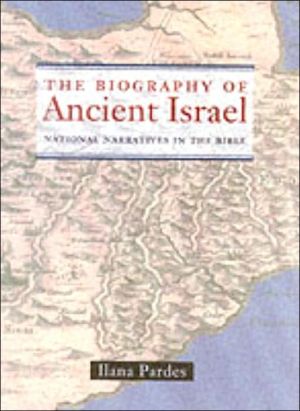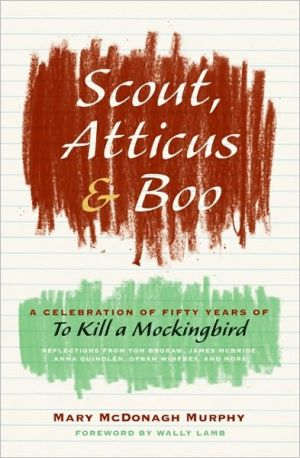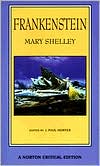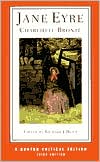The Biography of Ancient Israel: National Narratives in the Bible
In her exploration of national imagination in the Bible, Pardes highlights the textual manifestations of the metaphor, the many anthropomorphisms by which a collective character named "Israel" springs to life. She explores the representation of communal motives, hidden desires, collective anxieties, the drama and suspense embedded in each phase of the nation's life: from birth in exile, to suckling in the wilderness, to a long process of maturation that has no definite end. In the Bible,...
Search in google:
"Pardes has a remarkable gift for asking new questions about familiar texts and providing fresh insights into old problems. By looking closely at the key metaphors and the narrative details of the biblical story of the formation of the Israelite nation, she has teased out of the text a compelling biography."—Robert Alter, Professor of Hebrew and Comparative Literature, University of California, Berkeley"Ilana Pardes elegantly recasts the mythic story of Israel's emergence as the story of the birth, individuation, initiation, and maturity of an emergent subject. Ambivalences, deferrals, power struggles, and multiple memories all characterize Israel's development and the stories told about it. Through a set of close and graceful readings, Pardes persuasively argues that the first five books of the Bible constitute, not the history, but the biography of a nation." —Elizabeth A. Castelli, Barnard College, author of Imitating Paul: A Discourse of Power"The book of books has generated many other works, but Ilana Pardes's The Biography of Ancient Israel is in a class by itself. In beautiful, spare prose, she reconstructs the way the biblical authors imagined the history of ancient Israel. Artfully weaving literary and psychological insights, she has given us an entirely fresh view of the Bible as original as it is brilliant. This is a book for every reader of the Bible who wishes 'to wrest tradition away from a conformism that is about to overpower it.'"—David Biale, author of Eros and the Jews"This is a wonderful book and a delight to read. The idea of treating the exodus story as a collective biography is quite original, and makes possible a genuinely illuminating reading of the story."—Michael Walzer, author of Exodus and RevolutionChoiceA creative reading of the text emerges that helps explain its continual power to shape individual and communal identities far beyond its historical and geographic origins. . . . A wonderfully written book.
The Biography of Ancient Israel\ National Narratives in the Bible \ \ By Ilana Pardes \ University of California\ Copyright © 2000 Regents of the University of California\ All right reserved.\ ISBN: 0-520-23686-6 \ \ \ Chapter One\ Imagining the Birth of a Nation \ The metaphor of national birth is probably the most resonant anthropomorphic image in national biographies from antiquity to modern times. In fact, it is so resonant one tends to forget that nations are not born literally but rather are imagined in these terms. Every nation, however, has its own birth story, or birth stories. The Book of Exodus provides an intriguingly complex representation of Israel's birth in keeping with the preliminary imaginings of the nation in Genesis. The opening verses of Exodus 1 make clear that God's reiterated promises to Abraham, Isaac, and Jacob-the grand national annunciation scenes of Genesis-are finally realized. The descendants of Jacob, whose names are listed solemnly, multiply at an uncanny pace and turn into a "mighty" nation: the nation of the "children of Israel." "Israel" for the first time is not merely Jacob's second, elevated, name but rather a collective designation of a burgeoning community that "fills" the land. But then we discover that God's darker prophecy, in the covenant of the parts, is equally fulfilled: Israel is born in a prolonged exile against Pharaonic bondage.\ Representing the birth of a nation is not a simple task. Let me suggest that the imagining of this dramatic event in Exodus is facilitated by the interweaving of two biographies: the story of the birth of Moses and that of the nation. The fashioning of Israel as character, here as elsewhere, is inseparable from a complementary narrative strategy: the marking of individuals whose histories are paradigmatic. The nation's life story, in other words, is modeled in relation to the biographies of select characters. We have already noticed the national dimension inscribed in Abraham's story: the fashioning of his departure from Ur as prefiguration of the nation's exodus. Abraham, however, is only the first exemplary figure. The heterogeneity of national imagination in the Bible depends on a variety of representatives. Fragments of the biographies of Isaac, of Jacob, the eponymous father, and even of Hagar, the Egyptian handmaid, whose affliction foreshadows the nation's enslavement in Egypt, are also linked in different ways to the nation's biography and take part in its construction.\ On the question of birth, Moses' biography is of special importance. The analogy between the one and the multitude in this case is more immediate. Unlike the patriarchal biographies that pertain to a distant past and flicker over the chasm of time, Moses' story is fashioned within the same historical setting. Moses is a national leader whose history blends with the history of the nation. He is one of many Hebrew babies persecuted by Pharaoh. His story, however, is marked as the exemplary account that sheds light on the collective birth story as it prefigures the deliverance of the nation as a whole from bondage.\ Moses' birth story, as Otto Rank aptly suggests in The Myth of the Birth of the Hero, shares much in common with mythical birth stories. What characterizes the birth of a hero? Rank offers a list of recurrent motifs, relying on a variety of myths-from the birth legend of Aragon, the third-millennium o.k. king of Asked, to the renowned story of Oedipus's exposure and the tale of Rebus and Romulus, the legendary founders of Rome. The conception of the hero, he claims, is usually impeded by difficulties such as abstinence or prolonged barrenness. During or before pregnancy there is a prophecy, or an oracle cautioning the father against the hero's birth; the father tries to shape a different future and gives orders to kill his newborn son; the babe is then placed in a basket or a box and delivered to the waves. Against all odds, however, the hero is saved by animals or by lowly people and is suckled by a female animal or by a humble woman. When full-grown, he discovers his royal parents, takes revenge on his father, and, recognized by his people, finally achieves rank and honors.\ Following Freud, Rank reads the myth as an expression of Oedipal struggles between fathers and sons. The hero is he who is capable of standing against his father and overcoming him. The myth traces this struggle "back to the very dawn of the hero's life, by having him born against his father's will and saved in spite of his father's evil intentions." What we have here in Freudian terms is a "family romance," the kind of story a child fabricates when feeling deserted. Resentful of his parents' neglect (opportunities arise only too often), the child thinks of himself as a foundling, an adopted child, whose true parents-royal, needless to say-will eventually be revealed.\ Moses' story is indeed compatible in many ways with Rank's model: a threatened child, the exposure in the basket, the miraculous deliverance of the foundling, the two sets of parents, and the final acknowledgment of the hero's power. But then there is a significant difference that Rank smooths over by claiming that the original story had been distorted by the biblical scribes: Moses' true parents are not the royal ones but rather the poor Hebrew slaves.\ What Rank overlooks-as does Freud in the opening section of Moses and Monotheism-is that at a moment of national birth the inversion of the two sets of parents is purposeful. Moses' "true" parents are higher in rank despite their lowly position precisely because they are members of the chosen nation to be. This lapse in their readings of Moses' story derives in part from their failure to see the relevance of the myth to the representation of the nation as a whole.\ The juxtaposition of Moses' story and that of the nation entails an adaptation of the myth of the birth of the hero on a national plane. Put differently, it enables the construction of a myth of the birth of the nation. Israel's birth, much like that of Moses, takes place against Pharaoh's will.\ And the children of Israel were fruitful, and increased abundantly, and multiplied, and waxed exceeding mighty; and the land was filled with them. Now there arose up a new king over Egypt, which knew not Joseph. And he said unto his people, Behold, the people of the children of Israel are more and mightier than we. (Exod. 1:8-9)\ Interestingly, the expression 'am beney yisrael, "the nation of the children of Israel," is first used by none other than Pharaoh. Pharaoh's anxieties over the safety of his rule enable him to perceive the rise of Israel long before the Hebrews themselves can. Intimidated by the uncanny growth of the Hebrews, Pharaoh orders that every son who is born shall be cast into the Nile "and every daughter ye shall save alive" (Exod. 1:22). Much has been written about his curious choice to get rid of the male babies alone but with no consideration of the mythical background. What is at stake here is an application of the exposure motif (a male motif to begin with) to a community of sons. Pharaoh, the ruler of the parent-nation, fears the power of a budding nation of rivals growing within Egypt. Parental anxieties-what will emerge from the teeming womb?-thus conflate with racist anxieties-will the others overbear?\ Shiphrah and Puah, the two midwives whose names are associated with "beauty" (the former) and "birth sighs" (the latter), are the national correlate of Moses' female deliverers in Exodus 2. Here too a curious detail in the text-the fact that two midwives are considered sufficient for a national massacre-can be explained in terms of the mythical context and the interrelations of the two biographies. The midwives, much like humble rescuers of heroes, choose to violate the king's decree and save the threatened newborns. They trick Pharaoh by telling him midwives' tales: "And the king of Egypt called for the midwives, and said unto them, Why have ye done this thing, and have saved the men children alive? And the midwives said unto Pharaoh, Because the Hebrew women are not as the Egyptian women; for they are lively, and are delivered ere the midwives come in unto them" (1:18-19). Shiphrah and Puah outwit Pharaoh by confirming his racist anxieties concerning the proliferation of the Hebrew slaves. Relying on a common racist notion, according to which the other is closer to Nature, they claim that the Hebrew women need no midwives, for unlike Egyptian women, they are animal-like (ki chayot hena) and can give birth without professional help. There is an outburst of vitality out there, they seem to suggest, that cannot be yoked to the legal apparatus of the Pharaonic court. The recurrence of the term "midwife" in this brief episode-it appears seven times-highlights the admirable power and courage of the two women.\ The Politics of Birth\ So far I have underlined the mythical qualities of the representation of the nation's birth, but one needs to bear in mind the ways in which myth here is set against the historical setting of slavery, or rather against slave narratives whose purpose is to document the concrete horrors of bondage and commemorate modes of resistance. Michael Walzer offers a cogent reading of the Egyptian oppression in his meditation on the political meanings of the Exodus. He defines the enslavement in Egypt as a form of cruel tyranny, exercised from the seat of political power, that insisted not only on making a profit through forced labor but also on crushing the slaves' spirits, on embittering their lives with humiliating work. Indeed, the Hebrews could not at first listen to Moses' revolutionary ideas "for anguish of spirit, and for cruel bondage" (Exod. 6:9). The Hebrew is kotser ruach, literally, "shortness of spirit," an idiom for impatience, but in this context it acquires, Walzer claims, the additional meaning of "dispiritedness."\ What needs to be added to Walzer's analysis is a consideration of the ways in which bondage distorts and undermines the process of reproduction. The phenomenon is all too well known from testimonies regarding other instances of slavery. Bartolomé de Las Casas's depiction of New World slavery is relevant in this connection:\ Thus husbands and wives were together once every eight or ten months, and when they met they were so exhausted and depressed on both sides that they had no mind for marital intercourse, and in this way they ceased to procreate. As for the newly born, they died early because their mothers overworked and famished, had no milk to nurse them with, and for this reason, while I was in Cuba, 7000 children died in three months. Some mothers even drowned their babies from sheer desperation. The great spokesman against North American slavery, Frederick Douglass, captures the dehumanization involved from the moment of birth even when a newborn slave does manage to survive. He begins his renowned Narrative of the Life of Frederick Douglass, an American Slave, with a comment on his birth.\ I was born in Tuckahoe, near Hillsborough, and about twelve miles from Easton, in Talbot county, Maryland. I have no accurate knowledge of my age, never having seen any authentic record containing it. By far the larger part of the slaves know as little of their ages as horses know of theirs, and it is the wish of most masters within my knowledge to keep their slaves thus ignorant. I do not remember to have ever met a slave who could tell of his birthday.\ To reclaim birth is thus a revolutionary act in the context of slavery. It discloses hope for the newborn and the power to imagine a different future, one without bondage and tyranny; it means\ to reclaim subjecthood, to turn the birth of the oppressed into a meaningful event that needs to be recorded and narrated.\ The story of the birth of ancient Israel is a story of trauma and recovery. The founding trauma in the nation's biography is bondage, the repression of growth. But then a process of recovery begins that entails the inversion of exposure from an antinatal act to a means of rescue. Yocheved casts her son into the Nile, but Moses' exposure is not meant to comply with Pharaoh's decree but rather to undo it. Similarly, the nation as a whole multiplies despite Pharaoh's tortuous measures and tireless attempts to restrict its growth: "But the more they afflicted them, the more they multiplied and grew" (Exod. 1:12). The relation between affliction and growth is provocatively inverted. While Pharaoh expected a reduction in the birthrate, his harsh treatment of the Hebrews led to the opposite, to a mysterious increase.\ In Thy Blood Live\ In his explicit and rather graphic use of the metaphor of birth vis-à-vis the nation, Ezekiel sheds much light on the representation of national formation in Exodus. In a famous passage in Ezekiel 16, which relates the story of national birth, Jerusalem stands for the nation:\ And as for thy nativity, in the day thou wast born thy navel was not cut, neither wast thou washed in water to supple thee; thou wast not salted at all, nor swaddled at all. None eye pitied thee, to do any of these unto thee, to have compassion upon thee, but thou wast cast out in the open field, to the loathing of thy person, in the day that thou wast born. And when I passed by thee, and saw thee polluted in thane own blood, I said unto thee when thou wast in thy blood, Live; yea, I said unto thee when thou wast in thy blood, Live. I have caused thee to multiply as the bud of the field, and thou hast increased and waxen great, and thou art come to excellent ornaments: thy breasts are fashioned, and thine hair is grown, whereas thou wast naked and bare. Now when I passed by thee, and looked upon thee, behold, thy time was the time of love; and I spread my skirt over thee, and covered thy nakedness. (4-8)\ Israel was ruthlessly deserted by its parents at birth, soaking in blood helplessly without even receiving elementary postpartum care. The horrifying aspects of parental neglect are depicted in vivid detail. The newborn was not washed in water, her umbilical cord was not cut, her body was not salted (a practice that was apparently perceived as essential for the newborn's skin), nor was she swaddled. But then God passed by and adopted the neglected nation, adjuring Israel to live in her blood, to regard the marks of blood on her body as a source of life. What is more, He raised the nation and enabled her multiplication and growth. He provided her with the much-needed care and compassion that she lacked, washing the blood off her skin and furnishing her with excellent ornaments.\ \ Continues...\ \ \ \ Excerpted from The Biography of Ancient Israel by Ilana Pardes Copyright © 2000 by Regents of the University of California . Excerpted by permission.\ All rights reserved. No part of this excerpt may be reproduced or reprinted without permission in writing from the publisher.\ Excerpts are provided by Dial-A-Book Inc. solely for the personal use of visitors to this web site. \ \
Acknowledgments1Introduction: Split Conception12Imagining the Birth of a Nation163Suckling in the Wilderness: The Absent Mother404At the Foot of Mount Sinai: National Rites of Initiation655The Spies in the Land of the Giants: Restless Youth1006Crossing the Threshold: In the Plains of Moab1277Epilogue: Mount Nebo154Notes161Bibliography183Index195
\ Robert AlterPardes has a remarkable gift for asking new questions about familiar texts and providing fresh insights into old problems. By looking closely at the key metaphors and the narrative details of the biblical story of the formation of the Israelite nation, she has teased out of the text a compelling biography.\ \ \ \ \ ChoiceA creative reading of the text emerges that helps explain its continual power to shape individual and communal identities far beyond its historical and geographic origins. . . . A wonderfully written book.\ \ \ Elizabeth A. CastelliIlana Pardes elegantly recasts the mythic story of Israel's emergence as the story of the birth, individuation, initiation, and maturity of an emergent subject. Ambivalences, deferrals, power struggles, and multiple memories all characterize Israel's development and the stories told about it. Through a set of close and graceful readings, Pardes persuasively argues that the first five books of the Bible constitute, not the history, but the biography of a nation.\ \ \ \ \ David BialeThe book of books has generated many other works, but Ilana Pardes's The Biography of Ancient Israel is in a class by itself. In beautiful, spare prose, she reconstructs the way the biblical authors imagined the history of ancient Israel. Artfully weaving literary and psychological insights, she has given us an entirely fresh view of the Bible as original as it is brilliant. This is a book for every reader of the Bible who wishes 'to wrest tradition away from a conformism that is about to overpower it.'\ \ \ \ \ Michael WalzerThis is a wonderful book and a delight to read. The idea of treating the exodus story as a collective biography is quite original, and makes possible a genuinely illuminating reading of the story.\ \








